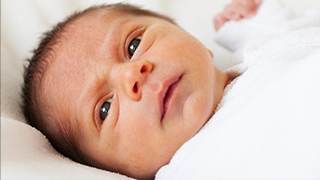'Embryo farming' may be on the horizon

A new lab procedure that could create sperm and eggs from people's skin may lead to large-scale "embryo farming", scientists have warned.
The technique, vitro gametogenesis (IVG), is in its early stages and is currently illegal in the UK and the USA, but medical experts in the USA are warning that the potential consequences must be discussed.
It is loaded with ethical concerns, including the mass creation and destruction of embryos and the creation of 'designer babies'.
Embryos created from skin
Scientists have learned to reprogram adult cells and then grow them into functioning sex cells.
Last October, Japanese scientists announced the birth of baby mice from eggs made with their parents' skin.
Writing in the journal Science Translational Medicine, Eli Adashi, professor of medical science at Brown University in Rhode Island, along with Glenn Cohen, a Professor of Law at Harvard Law School, and George Daley, Dean of Harvard Medical School, argue that it may be possible to make human eggs and sperm from skin "in the not too distant future".
Serious ethical concerns
IVG is being touted as a fertility treatment that may even give hope to cancer patients who have been made infertile due to chemotherapy.
But it poses several serious ethical concerns.
Should IVG ever become a simple, inexpensive procedure, clinics could create almost limitless supplies of sperm, eggs and embryos.
The researchers say: "IVG might raise the specter of 'embryo farming' on a scale currently unimagined, which might exacerbate concerns about the devaluation of human life."
The mass creation of embryos would also mean that most would be destroyed.
"For those who oppose embryo destruction, creating, say 100 embryos when you are only going to use five for implantation may seem problematic," said Glenn Cohen.
Couples seeking fertility treatment could be able to select from a pool of hundreds of embryos rather than the usual 'best' of half a dozen, essentially enabling designer babies.
The authors state: "IVG could, depending on its ultimate financial cost, greatly increase the number of embryos from which to select, thus exacerbating concerns about parents selecting for their 'ideal' future child. This worry would be exacerbated if IVF were combined with facile genome editing such as CRISPR".
'Complete disruption of natural order'
According to the journal report, IVG could also allow female same-sex partners have a child who shares both partners' genetic heritage. It could even possibly enable single women to conceive children of a single parentage.
Andrea Williams said that this ability to create babies without the need for one mother and one father would be "a complete disruption of the natural order, which was given to us by God for the basis of human flourishing.
"If this technique becomes a reality, children will be seen as products that can be manufactured in a lab," she added.
"God's design for mankind is for children to be conceived in a loving and committed relationship between a married mum and dad. This is proven to be the most beneficial environment for a child to grow up."
Related Links:
New fertility procedure may lead to 'embryo farming', warn researchers (Guardian)
Disruptive reproductive technologies (Science Translational Magazine)
